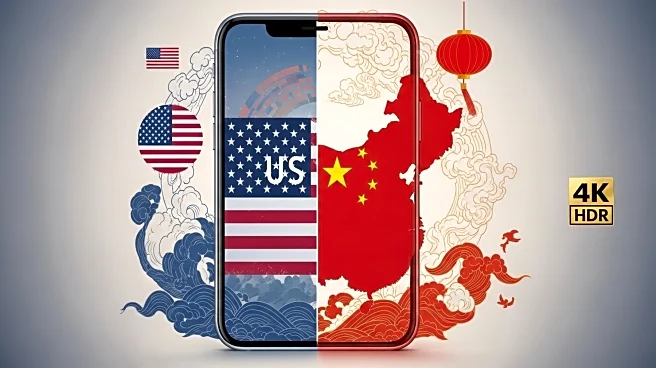What's Happening?
A framework agreement has been reached between the U.S. and China regarding the ownership of TikTok, a social media platform owned by China's ByteDance. The deal, announced by U.S. Treasury Secretary Scott Bessent, aims to transfer TikTok's ownership to a U.S.-based entity to address national security concerns. The agreement follows trade talks in Madrid and is expected to be finalized after discussions between President Trump and Chinese Premier Xi Jinping. The deal is part of ongoing efforts to resolve trade tensions between the two countries, with a focus on reducing investment barriers and promoting economic cooperation.
Why It's Important?
The TikTok deal is crucial for maintaining the platform's presence in the U.S. market while addressing security concerns related to data sharing with China. It represents a significant step in U.S.-China relations, potentially easing trade tensions and fostering economic collaboration. The agreement also highlights the challenges of balancing national security with global business interests in the tech industry. For TikTok's millions of American users and content creators, the deal provides assurance of the platform's continued availability.
What's Next?
The next phase involves finalizing the commercial terms of the deal and securing approval from both U.S. and Chinese leaders. A potential summit between President Trump and Premier Xi could further solidify the agreement and address other trade issues. The outcome may influence future negotiations on technology and trade policies between the two countries. Stakeholders, including tech companies and policymakers, will be watching closely to ensure that the deal aligns with national security and economic interests.
Beyond the Headlines
The TikTok agreement highlights the broader implications of technology ownership and data privacy in international relations. It raises questions about the role of government intervention in foreign-owned tech companies and the need for clear regulations to protect user data. The situation also underscores the growing influence of social media platforms in global politics and the importance of fostering innovation while ensuring security.











